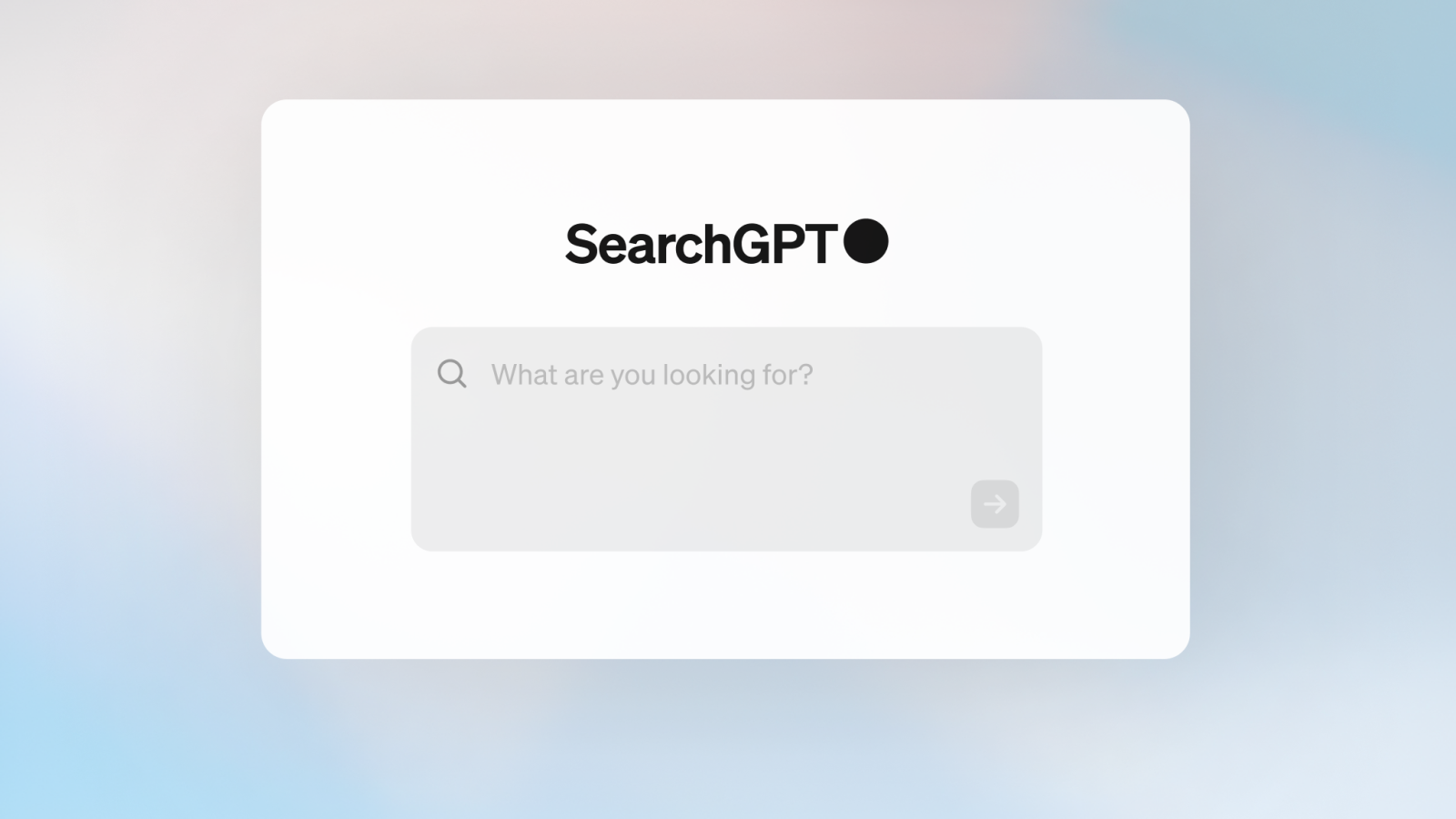Introduction
In a recent development, OpenAI announced its SearchGPT prototype, a cutting-edge generative search technology that it claims will revolutionize the way we interact with search engines. Expectedly, this announcement caused a frenzy, with Alphabet’s shares dropping by 3% following the news. Many are already foreseeing the death of Google Search as we know it.
But is it just noise? Since the introduction of ChatGPT in 2022, generative AI startups have gone on to shake up many industries, from design to software development, art, and so on. OpenAI has since amassed a valuation of $80 billion and is firmly positioned as an industry leader. Now they are aiming for Search.
“We think there is room to make search much better than it is today,” Sam Altman, OpenAI CEO, wrote in a recent X post.
In this comprehensive article, we offer an overview of generative search technology and OpenAI’s SearchGPT. If you want to understand how it works, its limitations, and future trends, read on!
Why SearchGPT?
Tools like SearchGPT indicate a transformative shift in search technology, reflecting the growing integration of AI tools in everyday digital experiences. Unlike conventional search engines, which rely on keyword matching and predefined algorithms, SearchGPT uses OpenAI’s flagship GPT to understand and generate responses aligning closely with user intent.
In theory, this should enable more correct, nuanced, and personalized search results, enhancing the overall user experience.
But recall that OpenAI isn't the first player here; Google’s very own generative search feature, AI Overviews, was launched at the last I/O event in May, though it was off to a disturbing start as the tool failed to live up to the expectations of early users.
Below is a screenshot of the AI with an unreasonable response.
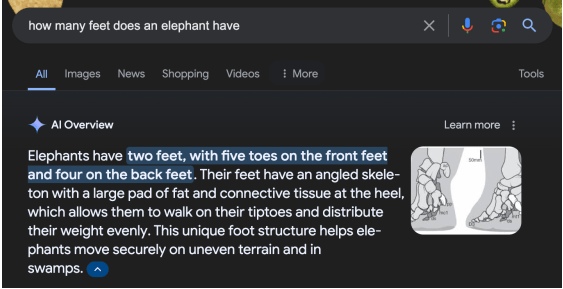
AI Overviews’ failures also raise many questions about generative search and the current capacities of AI technology. The future is undeniably tilting towards AI, but what this would mean for Google remains unclear.
What Exactly is Generative Search?
Generative search is a big shift from traditional search methodologies, relying on the power of advanced artificial intelligence to deliver highly relevant and contextually aware search results.
Unlike traditional search engines, generative search employs sophisticated large language models (LLMs) and AI algorithms to understand and generate responses based on the intent and context of user queries.
Traditional search vs. Generative search
Below is a comparison of both search models across key factors.
| Traditional Search | Generative Search | |
|---|---|---|
| Mechanism | Indexes and retrieves web content using complex algorithms and keyword matching | Utilizes large language models to generate contextual responses based on user queries |
| Algorithm | Uses machine learning algorithms considering hundreds of ranking factors, including relevance, authority, and user experience | Employs neural networks trained on diverse datasets to understand context, generate relevant content, and provide direct answers |
| Results | Provides a list of relevant web pages, sometimes with featured snippets for direct answers | Offers conversational, context-aware responses and can perform tasks beyond information retrieval |
Understanding Generative Search Responses
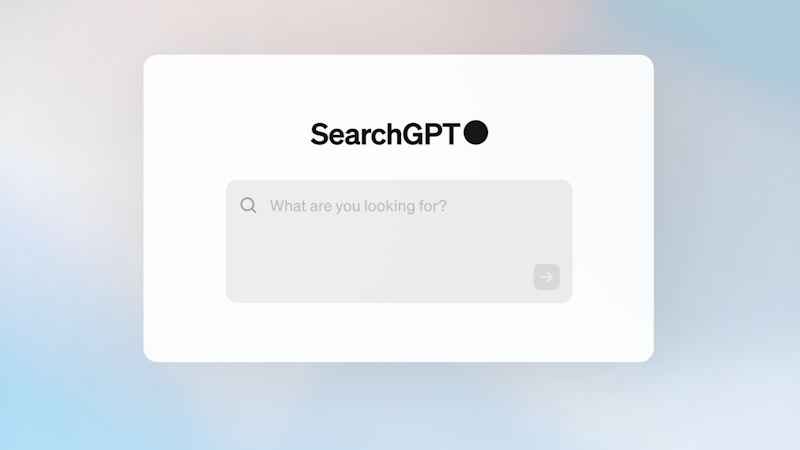
The core technology behind generative search is a model that is pre-trained on a variety of textual data, enabling it to learn grammar, facts, reasoning abilities, and even some level of common sense.
When fine-tuned for specific tasks, such as search, these models can provide highly relevant and context-sensitive responses.
For instance, if a user searches for "best places to visit in Paris," a traditional search engine will return a list of web pages containing related keywords.
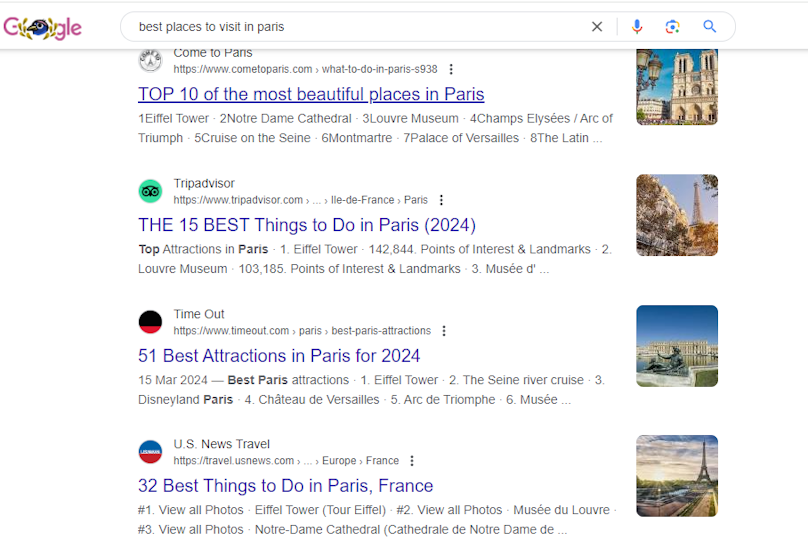
In contrast, a generative search engine powered by GPT could understand the user's intent and generate a tailored response that includes a summary of top attractions, personalized recommendations, and even tips for travelers, all within the search results page.
This ability to generate nuanced and user-centric content on the fly is a significant departure from the static and sometimes rigid nature of traditional search results. Consequently, generative search has the potential to enhance user experience by delivering more precise and contextually appropriate information. This will ultimately transform the way we access and interact with digital content.
How Generative Search Works
Still wondering how generative search works? Let's consider more closely what a tool like SearchGPT does under the hood. Here’s a step-by-step breakdown of the process:
1. Query Understanding
When a user inputs a query, the generative search engine first seeks to understand the intent and context behind the search. This involves parsing the query using natural language processing (NLP) techniques to interpret its meaning beyond just the keywords.

2. Contextual Analysis
The search engine then performs a contextual analysis, considering factors such as the user's search history, location, and preferences to refine its understanding of the query. This step is crucial in generating personalized and context-aware results.
3. Information Retrieval
Next, the AI engine retrieves relevant information from a vast array of sources. Unlike traditional search engines that rely heavily on indexed web pages, generative search can pull data from structured databases and even knowledge graphs.
4. Response Generation
Using a language model like GPT, the generative search engine synthesizes the retrieved information to generate a coherent and contextually appropriate response. This model has been trained on extensive datasets, enabling it to produce human-like text that directly addresses the user’s query.
5. Result Presentation
Finally, the generated response is presented to the user in a conversational format. This response is often more detailed and informative than traditional search results, offering summaries, recommendations, or even direct answers to the query.

Why SearchGPT is a Game Changer: Advantages of Generative Search
Ever entered a query into Google Search and gotten a bunch of irrelevant results? We have all been there. This happens because search engines do not really "understand" your query. They are designed to get a bunch of pages with the keywords you entered.
Originally, all a website needed to do was stuff pages with keywords, and they appeared, regardless of how the pages addressed the reader's question.
Admittedly, traditional search has come a long way. Over the years, Google adopted many SEO approaches to tackle this poor design and ensure the delivery of only human-focused content. However, traditional search still falls behind on many fronts. Here are the potential benefits of generative search engines like SearchGPT:
1. Intelligent Results
Generative search has the potential to deliver highly accurate results by understanding the context and intent behind user queries. Traditional search models can lead to irrelevant or superficial results. In contrast, generative search interprets the deeper meaning of queries, producing responses that closely align with what you are actually seeking.
2. Personalized Responses
Generative search engines rely on user data, such as search history, preferences, and location, to tailor responses specifically to the individual. This personalization ensures that the information presented is relevant and useful to the user, enhancing the overall search experience.
3. Improved User Experience
Users receive comprehensive straight-to-the-point information in a single response, reducing the need to sift through multiple web pages. This efficiency makes searching faster and more satisfying.
4. Conversational Interface
With Generative search, it's like conversing with a learned friend; users can interact with the search engine more naturally. This format is especially beneficial for complex queries or follow-up questions, creating a more intuitive and engaging search process.

5. No Sponsored Ads (for now)
If you were to input a query into Google search, chances are that you will get many "sponsored posts" atop other pages. With SearchGPT, this is unlikely, as you are in a direct conversation with the AI interface. Whether this will change in the future remains to be seen.
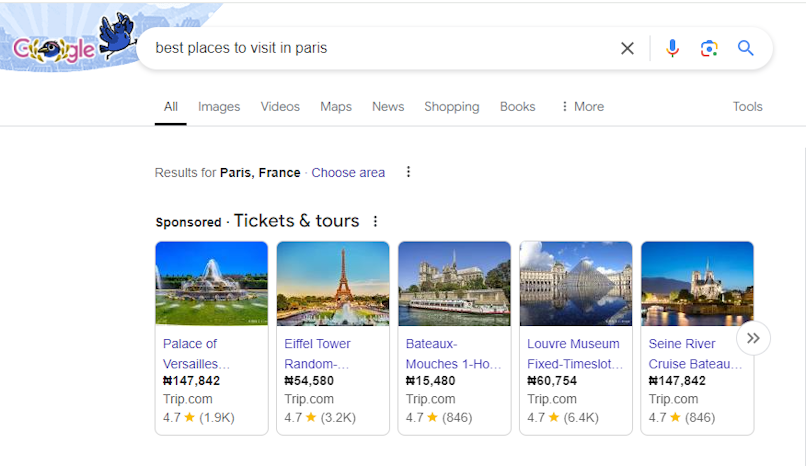
6. Links to Sources
SearchGPT also provides links to relevant sources in its answers. That way, you can easily verify the information presented or indulge in further learning. Finding reputable sources was difficult in the era of traditional search.

Addressing Limitations of Generative Search
Google’s AI Overviews is basically a smart summary bot that uses Gemini to give you quick and easy answers to tough questions, so you don't need to hunt around different websites.
One thing Google's AI Overviews launch did was show us that generative search may still have a long way to go, as the AI feature’s many unrealistic responses had social media users enraged. Hopefully, SearchGPT will be an improvement.
The potential limitations of generative search include:
May prioritize popularity over accuracy: Generative search often presents information based on its popularity rather than its veracity. This may lead to the amplification of misinformation.
Vulnerable to AI hallucination: It is long established that Generative AI can fabricate information to fill knowledge gaps, resulting in the spread of false data.
Inability to assess source credibility: Generative search may lack the capacity to evaluate the reliability of information sources, making it difficult to distinguish between factual and misleading content.
Potential for amplifying disinformation: By surfacing information from user-generated sources or parody accounts, generative search can contribute to the spread of harmful information.
Reliance on existing information: Generative search is limited to the data it has been trained on, potentially excluding relevant or up-to-date information.
Is SearchGPT the End of Google Search?
In 2021, Google quickly answered OpenAI’s ChatGPT with its own Bard (now Gemini). Already, AI Overviews, which is a direct competitor to SearchGPT, is live. Truly, Google Search's 20-year dominance may decrease with the adoption of SearchGPT, but it would be an uphill task to cut down its 70% market share by a big margin.
Not only does Google have its own generative AI feature, but the company pointed out in a release that it has taken steps to improve AI Overviews by:
Limiting nonsensical and irrelevant content.
Increasing focus on factual and high-quality sources.
Strengthening safeguards against misinformation, especially in news and health.
Implementing stricter controls for user-generated content.
If the tech behemoth can get things in order, then Google Search is likely to evolve into a more formidable rival that would be truly difficult for SearchGPT to unseat.
Broader Implications of SearchGPT and Generative Search for the Industry
The introduction of generative search by OpenAI and other tech giants will likely reshape the competitive landscape of the search industry. Established players like Google and Microsoft are already ahead of the curve. Recall that OpenAI is backed by Microsoft. And the latter announced 5 days ago that they were launching generative search for Bing Search.
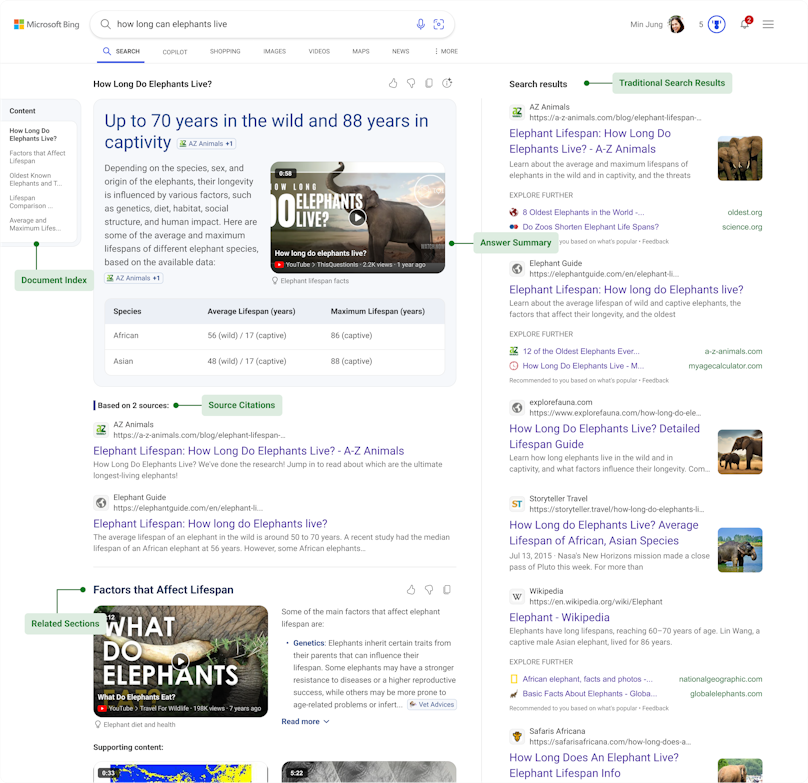
Such competition can only drive innovation across the industry, prompting other existing search engines to enhance their own AI capabilities to keep pace.
Potential Shifts in Advertising Models
Generative search could disrupt traditional online advertising models. Currently, search engines like Google Search generate significant revenue from pay-per-click (PPC) advertising, where businesses bid for placement in search results.
With generative search providing more precise and relevant answers, the format and placement of ads may need to change. Advertisers might need to focus on creating high-quality, relevant content that aligns with the AI-generated results, potentially leading to a more value-driven advertising ecosystem.
What About SEO?
Traditional SEO strategies that focus on keyword optimization and backlink building may lose some effectiveness. Already, SEO has heavily shifted towards creating high-quality, informative content.
Now there might be a need to create content in a manner that will ensure that AI models can easily interpret and use your content to generate responses.
This could lead to a greater emphasis on content depth, user engagement, and semantic relevance.
Role of AI Ethics and Transparency in Search Algorithms
The widespread adoption of AI has raised important ethical considerations. AI-generated results must be unbiased, accurate, and respectful of user privacy. Addressing biases in AI models is crucial to ensuring fair and equitable search outcomes.
Ensuring Transparency
Transparency in how these models are trained and how they generate responses will help build trust with users and avoid misinformation. This transparency can be achieved through clear documentation, user-friendly explanations, and potentially even open-sourcing parts of the AI models.
Protection of User Data
The integration of AI in search technology should comply with existing regulations on data privacy and protection. This compliance is essential to protect user data and maintain trust.
Continuous Monitoring and Improvement
AI's dynamic nature requires continuous monitoring and improvement. Developers must regularly update and refine AI models to mitigate biases, enhance accuracy, and ensure ethical standards are upheld.
Future Trends and Predictions
We are set to witness remarkable advancements in generative search, with several key developments on the horizon. Here are some features to watch out for.
Multi-modal Search
One significant trend is the integration of multimodal search capabilities, which allow users to input queries through various formats, including text, images, and videos.
Voice-based Search
As voice recognition technology continues to improve, generative search engines will become increasingly adept at understanding and processing natural language queries.
AI Advancements
Emerging research areas are focusing on enhancing the contextual understanding of AI models, and improving their ability to generate accurate and relevant results.
Advances in natural language processing (NLP) and machine learning will drive these improvements, enabling search engines to better interpret user intent and provide more precise answers.
Final Thoughts
The rapid advancements in AI and machine learning are continuously pushing the boundaries of what is possible. Generative search technology is a pivotal moment in the evolution of digital media. As we move forward, the integration of advanced AI models like OpenAI's SearchGPT will likely continue to enhance our search experiences, making them more accurate, personalized, and contextually aware. This shift promises not only to improve user satisfaction but also to drive innovation across the search industry, reshaping advertising models and SEO practices.
As generative search technology evolves, we must keep ethical considerations in mind and work together to ensure transparency and fairness in AI algorithms. Human oversight will remain indispensable in curating content and maintaining the quality and relevance of search results. This balance between AI automation and human judgment will be key to realizing the full potential of generative search.

